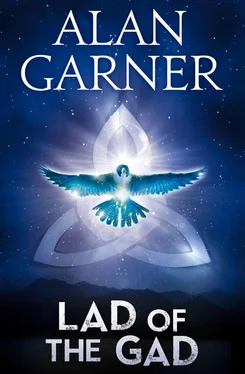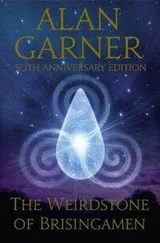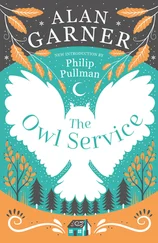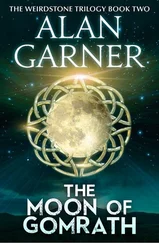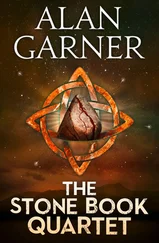Alan Garner - The Lad Of The Gad
Здесь есть возможность читать онлайн «Alan Garner - The Lad Of The Gad» — ознакомительный отрывок электронной книги совершенно бесплатно, а после прочтения отрывка купить полную версию. В некоторых случаях можно слушать аудио, скачать через торрент в формате fb2 и присутствует краткое содержание. Жанр: unrecognised, на английском языке. Описание произведения, (предисловие) а так же отзывы посетителей доступны на портале библиотеки ЛибКат.
- Название:The Lad Of The Gad
- Автор:
- Жанр:
- Год:неизвестен
- ISBN:нет данных
- Рейтинг книги:4 / 5. Голосов: 1
-
Избранное:Добавить в избранное
- Отзывы:
-
Ваша оценка:
- 80
- 1
- 2
- 3
- 4
- 5
The Lad Of The Gad: краткое содержание, описание и аннотация
Предлагаем к чтению аннотацию, описание, краткое содержание или предисловие (зависит от того, что написал сам автор книги «The Lad Of The Gad»). Если вы не нашли необходимую информацию о книге — напишите в комментариях, мы постараемся отыскать её.
The Lad Of The Gad — читать онлайн ознакомительный отрывок
Ниже представлен текст книги, разбитый по страницам. Система сохранения места последней прочитанной страницы, позволяет с удобством читать онлайн бесплатно книгу «The Lad Of The Gad», без необходимости каждый раз заново искать на чём Вы остановились. Поставьте закладку, и сможете в любой момент перейти на страницу, на которой закончили чтение.
Интервал:
Закладка:
for Natasha
Contents
Cover
Title Page
Dedication for Natasha
INTRODUCTION Introduction The oral tradition of folktale no longer exists in the English language. Now, rather than human recollection shared through community of audience and the storyteller’s own belief, the source of every folktale is another book. Made written, folktale is treated as a juvenile branch of literature; but the two are different, and we should mark the differences. The word in the air is not the same word on the page. We can say that, while folktale scarcely engages the intellect, fiction does not allow imagery to carry the weight. Both forms are valid metaphors of reality; but folktale speaks with the logic of dream; it is supple, changing in the mouth of the storyteller, always archaic, not a single creation, but a weaving of existing threads. The folktale, when written, should still continue to be worked as it was when it was a spoken form, so that it stays relevant and vital; yet the body of British folktale is obsolete, a reductive continuity of Nineteenth Century texts, which reflect the attitudes of the period when the bulk of our traditional remains was set in print. Since that time, the British folktale has become, properly, a subject for scholarship, and, less properly, a vehicle for the moral instruction of the young. Shorn of its inherent music, mistakenly pursued for rational meaning, folktale has lost its force within the general culture. Among societies where oral tradition has not been abused, folktale is no dull matter that anyone may touch, but more a collection of patterns to be translated with the skill, bias and authority of the craftsman, who, in serving his craft, allows that craft to serve the people. The contrast between intuitive mediation from within and externally applied precept is nice, and crucial. British folktale, in untutored and literary hands, has become infant homily or adult science. There remains no middle ground. “The Lad of the Gad” is an attempt to recover a middle ground. I have tried to place my literate ear in the way of a preliterate voice, so that, although the word in the air is not the same word on the page, the force may be recreated and felt. My approach has been to give the stories something of the sequential structure of a controlled fiction while retaining an impression of the original dream. The stories are taken from the Goidelic layers of British folktale. Another writer would choose differently, and I would choose differently myself at another time. But these are the stories now, because, in a way that I understand only after having listened to them as they were being worked, they offer compensatory images of the world that I cannot find in a more conventional prose today. 28 March, 1980 A.G.
UPRIGHT JOHN
RASCALLY TAG
OLIOLL OLOM
THE LAD OF THE GAD
LURGA LOM
About the Author
Praise
Also by the Author
Copyright
About the Publisher
Introduction
The oral tradition of folktale no longer exists in the English language. Now, rather than human recollection shared through community of audience and the storyteller’s own belief, the source of every folktale is another book. Made written, folktale is treated as a juvenile branch of literature; but the two are different, and we should mark the differences. The word in the air is not the same word on the page.
We can say that, while folktale scarcely engages the intellect, fiction does not allow imagery to carry the weight. Both forms are valid metaphors of reality; but folktale speaks with the logic of dream; it is supple, changing in the mouth of the storyteller, always archaic, not a single creation, but a weaving of existing threads.
The folktale, when written, should still continue to be worked as it was when it was a spoken form, so that it stays relevant and vital; yet the body of British folktale is obsolete, a reductive continuity of Nineteenth Century texts, which reflect the attitudes of the period when the bulk of our traditional remains was set in print. Since that time, the British folktale has become, properly, a subject for scholarship, and, less properly, a vehicle for the moral instruction of the young. Shorn of its inherent music, mistakenly pursued for rational meaning, folktale has lost its force within the general culture.
Among societies where oral tradition has not been abused, folktale is no dull matter that anyone may touch, but more a collection of patterns to be translated with the skill, bias and authority of the craftsman, who, in serving his craft, allows that craft to serve the people. The contrast between intuitive mediation from within and externally applied precept is nice, and crucial. British folktale, in untutored and literary hands, has become infant homily or adult science. There remains no middle ground.
“The Lad of the Gad” is an attempt to recover a middle ground. I have tried to place my literate ear in the way of a preliterate voice, so that, although the word in the air is not the same word on the page, the force may be recreated and felt. My approach has been to give the stories something of the sequential structure of a controlled fiction while retaining an impression of the original dream.
The stories are taken from the Goidelic layers of British folktale. Another writer would choose differently, and I would choose differently myself at another time. But these are the stories now, because, in a way that I understand only after having listened to them as they were being worked, they offer compensatory images of the world that I cannot find in a more conventional prose today.
| 28 March, 1980 | A.G. |
Upright John
There was a king and a queen, and between them was a son called Upright John. The queen died, and the king married another.
One day John was at the hunting hill, and he got no game at all. He saw a blue falcon and let an arrow at her, but he did no more than to drive a feather from her wing. He lifted the feather, put it in his bag and went home.
When he came home, his stepmother said to him, “Where is the game today?” He took out the feather and gave it to her.
She said, “I set it as crosses and as spells, and as the decay of the year on you, and as the seven fairy fetters of going and straying, that you shall not be without a pool in your shoe, and that you shall be wet, cold and soiled, until you get for me the bird from which that feather came.”
And John said to her, “I set it as crosses and as spells, and as the decay of the year on you, and as the seven fairy fetters of going and straying, that you shall stand with one foot on the castle, and the other on the hall, and that your face shall be to the tempest whatever wind blows, until I return.”
He went away to look for the falcon from which the feather came, and his stepmother the queen was standing with one foot on the castle and the other on the hall, her front to the face of the tempest, however long he might be away.
Upright John went, travelling the waste, but he could not see the falcon. He was by himself, and the night came blind and dark, and he crouched at the root of a briar.
A Foxy Lad appeared to him and said, “You are sad, Upright John. Bad is the night on which you have come. I myself have only a trotter and a sheep’s cheek, but they must do.”
They blew a fire heap, and they roasted flesh and ate the trotter and the sheep’s cheek. And the next morning the Foxy Lad said to the king’s son, “The Blue Falcon is with the Giant of the Five Heads, the Five Humps and the Five Throttles, and I shall show you where he lives.
“And my advice to you,” said the Foxy Lad, “is for you to be his servant, nimble to do all that he asks of you, and each thing he entrusts to you, with exceeding care. Be very good to his birds, and he will let you feed the Blue Falcon. And when the giant is not at home, run away with her: but see that no part of her touches any one thing that is the giant’s, or your matter will not go well with you.”
Читать дальшеИнтервал:
Закладка:
Похожие книги на «The Lad Of The Gad»
Представляем Вашему вниманию похожие книги на «The Lad Of The Gad» списком для выбора. Мы отобрали схожую по названию и смыслу литературу в надежде предоставить читателям больше вариантов отыскать новые, интересные, ещё непрочитанные произведения.
Обсуждение, отзывы о книге «The Lad Of The Gad» и просто собственные мнения читателей. Оставьте ваши комментарии, напишите, что Вы думаете о произведении, его смысле или главных героях. Укажите что конкретно понравилось, а что нет, и почему Вы так считаете.
